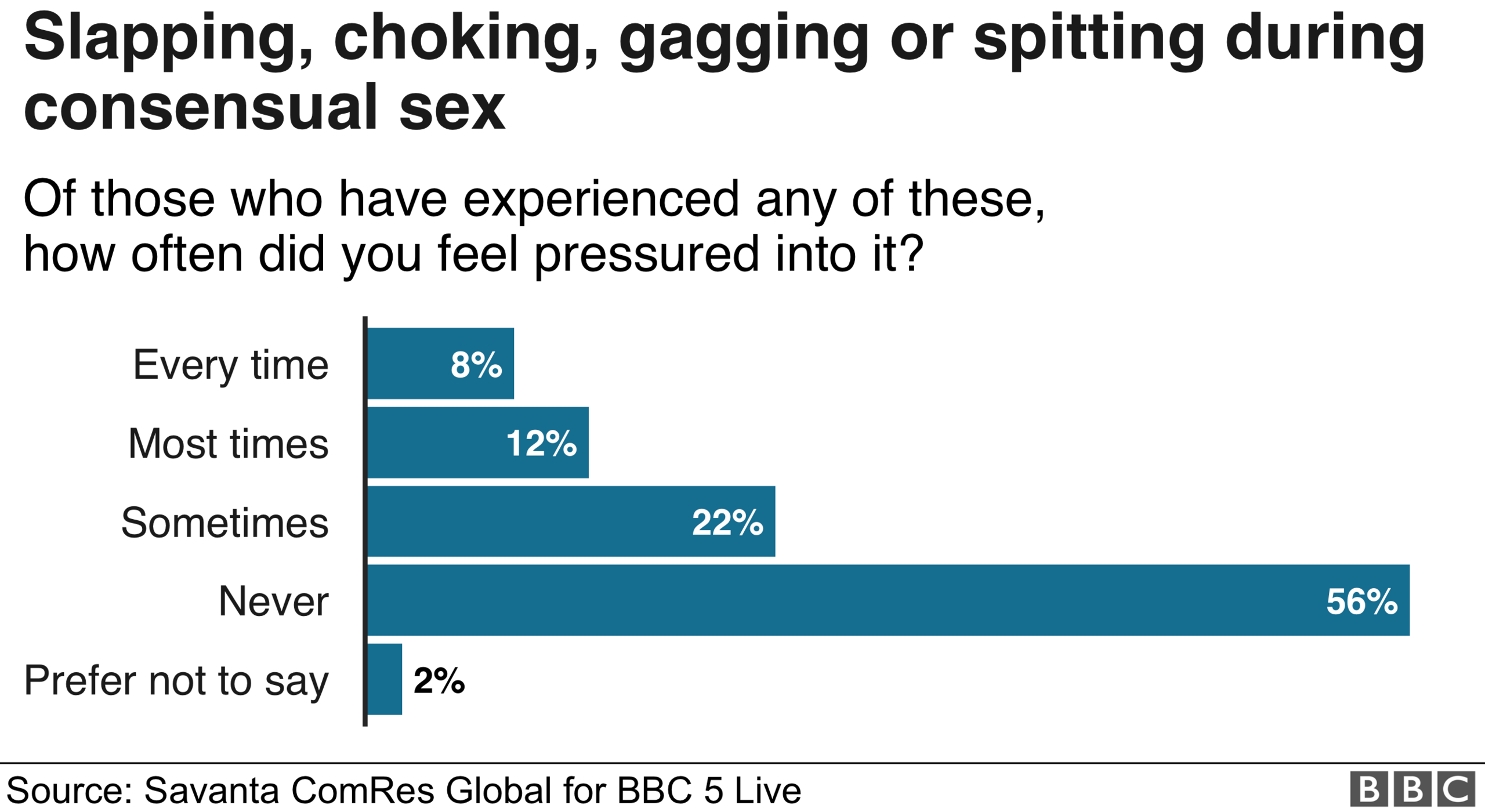Women in Scotland 'appalled' by violence during sex on dates
- Published

Fiona Mackenzie set up the campaign group We Can't Consent To This
Women in Scotland are frequently "appalled" at the violence they experience during sex with men they are on a date with, activists say.
Campaign group We Can't Consent To This said it knew of victims - many aged in their 40s or 50s - who had been strangled, slapped and spat on.
The group said brutality that features in pornography was often to blame.
They are calling for the law surrounding the issue of consent in sexual violence crimes to be toughened.
It follows a number of recent murder trials in which a "rough sex" defence has been used by the accused.
This argument is sometimes used in court when a man has been accused of killing or attacking a woman while having consensual sex.
An accused's legal team may bring up the victim's sexual preferences or argue she "asked" for the act of violence that led to her death or injury.
In the recent case of Grace Millane, a 21-year-old British backpacker who was murdered while on a date in New Zealand, the defence unsuccessfully argued she died after being consensually choked during sex.

University of Lincoln graduate Grace Millane was on a round-the-world trip at the time of her death
While her killer was convicted of murder, campaigners say they have now seen a surge in this sort of defence being used during trials in the UK - often resulting in a lesser conviction such as manslaughter.
We Can't Consent To This is pushing for clarification that individuals cannot consent to violent acts during consensual sex in Scots law.
Founder Fiona Mackenzie said women often do not see this sort of violence as assault, rather as something they've "put themselves into".
"There's one thing that's extremely concerning which is the widespread normalisation of violence against women in sex," she said.
"We hear from women who have been choked, punched, slapped and spat on. I think that's really concerning and I think that's meaning that these defences are much more likely to work."
Last week, the BBC published research that suggests that more than a third of women, aged between 18 and 39, had experienced unwanted slapping, choking, gagging or spitting during consensual sex.
However, Ms Mackenzie said that since launching her campaign, a large proportion of the women she has heard from are aged in their 40s and 50s while some have even been in their 60s.
She said: "We hear particularly from women who return to dating after maybe a long relationship who are appalled by the level of violence they are being subjected to.
"I don't think it is just the younger age groups."
Ms Mackenzie opened up about her own experience of violence during sex after being choked by a partner.
She continued: "I'd like to say it was a long time ago but I think even at the time I blamed myself, I thought it was something that I was responsible for.
"Many of these women live with quite extreme trauma, they can't wear clothing that's close to their neck or jewellery.
"Many of them say they just don't date men anymore because it's too scary and they've been assaulted too many times. Being subjected to that kind of assault is absolutely terrifying."

In 2009, the law in Scotland changed to clamp down on the possession of violent pornography.
The law was clarified to ban "realistic depictions" of rape attacks as well as life-threatening and violent sexual acts, bestiality and necrophilia.
A 2016 study indicated a majority of children are exposed to online pornography by their early teens, which researchers called "worrying".
Ms Mackenzie said that while the effort to clamp down on violent pornography in Scotland was important, it is "almost never enforced."
She continued: "If you go onto any of the main porn sites you see again and again, women being strangled to unconsciousness.
"I would hope that porn companies would take action to crack down on that - I don't think they have any incentive to at the moment.
"We hear that pornography is normalising the choking of women in sex - we hear from men who use pornography that that's where it's coming from."
At present the campaign has no concrete changes to present to Holyrood but has urged the Scottish Law Commission to clarify that a person cannot consent to violence leading to injury.
Ms Mackenzie, whose campaign has backing from charities such as Zero Tolerance, said that societal changes were crucial.
Law 'under review'
She has called for more public bodies to collect data on the issue as well as better sex education in schools and a review of how police handle complaints from potential victims.
Prior to the suspension of the Westminster parliament, changes to the Domestic Abuse Bill were proposed in England and Wales to reinforce the fact that consent can be no defence for death. There have been calls for the bill to be reintroduced after the general election.
The Scottish government said it was aware of cases in Scotland where the accused has argued the victim consented to the acts resulting in their death, but these resulted in conviction for murder or culpable homicide.
It said it had strengthened the criminal law on sexual offences, that the law was being kept under review and it will carefully consider any proposals to reform it.
If you have been affected by sexual abuse or violence, help and support is available at BBC Action Line.
- Published22 November 2019

- Published28 November 2019
